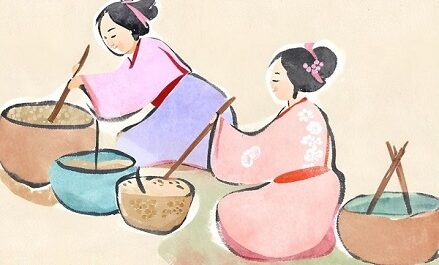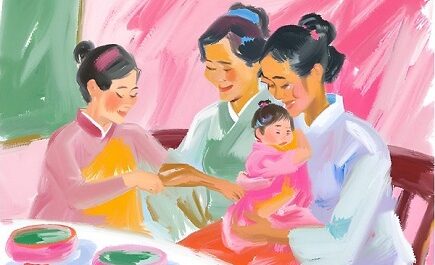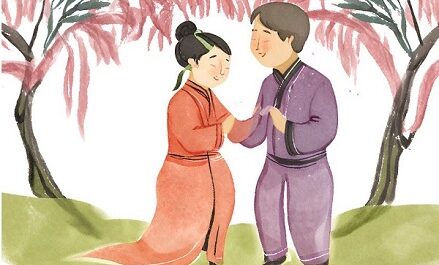Learn Chinese Idiom with Pinyin and English

- Idiom in Chinese-女宜立业,男亦入厨。
- Pinyin of Idiom– nǚ yí lì yè, nán yì rù chú.
- Idiom’s Meaning in English– This idiom emphasizes the importance of women establishing their own careers and achieving independence, while also suggesting that men should share household responsibilities, including cooking. It reflects a more equal view of gender roles in society, encouraging both genders to contribute in various aspects of life.
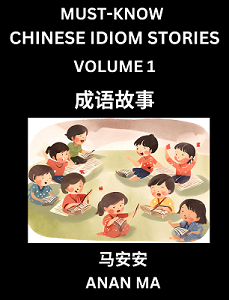
Chinese Idiom Stories Books (HSK All Levels):
- Books to Learn Chinese Idiom Stories (Part 1)
- Books to Learn Chinese Idiom Stories (Part 2)
- Books to Learn Chinese Idiom Stories (Part 3)
Learn Chinese Idiom Story in English (成语故事的英文)
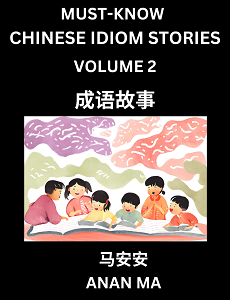
In ancient times, it was commonly believed that men should go out and work to support the family financially, while women should stay at home to take care of household chores and children. However, in a small town, there was a woman named Li Xiu who was intelligent and ambitious. She desired to work outside and achieve her own value just like men.
Li Xiu’s parents, though traditional, no longer opposed her aspirations when they saw how determined she was. Li Xiu studied hard and eventually became a successful businesswoman. Meanwhile, her husband, Zhang Qiang, saw his wife’s efforts and success, prompting him to reflect on his own responsibilities as a man. He decided to learn cooking and help his wife with household duties, allowing Li Xiu to focus more on her career.
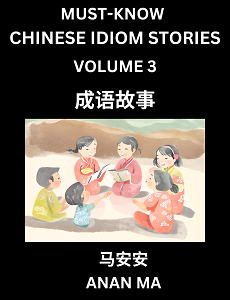
The people of this small town observed the changes in Li Xiu and Zhang Qiang and began to reevaluate their traditional gender concepts. They gradually realized that both men and women should pursue their dreams and take on their responsibilities. Thus, the idiom “nǚ yí lì yè, nán yì rù chú” spread in this town, encouraging equality in gender roles.
Learn Idiom Story in Chinese (成语故事)
在古代,人们普遍认为男子应该外出打拼,承担家庭的经济责任,而女子则应该留在家里,负责家务和育儿。然而,在一个小镇上,有一个名叫李秀的女子,她不仅聪明伶俐,而且有着强烈的进取心。她渴望像男子一样,能够外出工作,实现自己的价值。
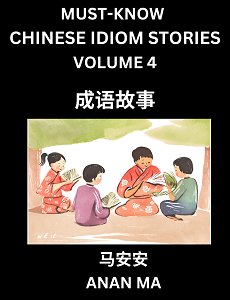
李秀的父母虽然传统,但看到她如此坚持,也就不再反对。李秀开始努力学习,最终成为了一位成功的商人。与此同时,她的丈夫张强也看到了妻子的努力和成功,开始反思自己作为男子的责任。他决定学习烹饪,帮助妻子分担家务,让李秀能够更专注于自己的事业。
这个小镇上的人们看到了李秀和张强的改变,开始重新审视传统的性别观念。他们逐渐明白,无论是男是女,都应该追求自己的梦想,承担自己的责任。于是,“女宜立业,男亦入厨”这个成语便在这个小镇上流传开来。
Learn Keywords with English, Simplified Chinese Characters, and Pinyin (关键词)
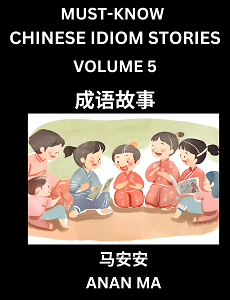
李秀 (Lǐ Xiù): Li Xiu – a perseverant and enterprising woman
张强 (Zhāng Qiáng): Zhang Qiang – Li Xiu’s husband who eventually learns to cook
商人 (shāng rén): businessman – refers to Li Xiu’s occupation
烹饪 (pēng rèn): cooking – refers to Zhang Qiang’s new skill
性别观念 (xìng bié guān niàn): gender role concept – refers to traditional views on male and female roles
Pinyin of Idiom Story (故事的拼音)
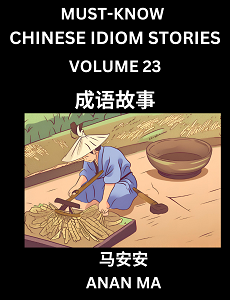
Zài gǔdài, rénmen pǔbiàn rènwéi nánzǐ yīnggāi wàichū dǎpīn, chéngdān jiātíng de jīngjì zérèn, ér nǚzǐ zé yīnggāi liú zài jiālǐ, fùzé jiāwù hé yù’ér. Rán’ér, zài yīgè xiǎo zhèn shàng, yǒu yīgè míng jiào lǐ xiù de nǚzǐ, tā bùjǐn cōngmíng línglì, érqiě yǒuzhe qiángliè de jìnqǔ xīn. Tā kěwàng xiàng nánzǐ yīyàng, nénggòu wàichū gōngzuò, shíxiàn zìjǐ de jiàzhí.
Lǐ xiù de fùmǔ suīrán chuántǒng, dàn kàn dào tā rúcǐ jiānchí, yě jiù bù zài fǎnduì. Lǐ xiù kāishǐ nǔlì xuéxí, zuìzhōng chéngwéile yī wèi chénggōng de shāngrén. Yǔ cǐ tóngshí, tā de zhàngfū zhāngqiáng yě kàn dàole qīzi de nǔlì hé chénggōng, kāishǐ fǎnsī zìjǐ zuòwéi nánzǐ de zérèn. Tā juédìng xuéxí pēngrèn, bāngzhù qīzi fēndān jiāwù, ràng lǐ xiù nénggòu gèng zhuānzhù yú zìjǐ de shìyè.
Zhège xiǎo zhèn shàng de rénmen kàn dàole lǐ xiùhé zhāngqiáng de gǎibiàn, kāishǐ chóngxīn shěnshì chuántǒng dì xìngbié guānniàn. Tāmen zhújiàn míngbái, wúlùn shì nán shì nǚ, dōu yīnggāi zhuīqiú zìjǐ de mèngxiǎng, chéngdān zìjǐ de zérèn. Yúshì,“nǚ yí lìyè, nán yì rù chú” zhège chéngyǔ biàn zài zhège xiǎo zhèn shàng liúchuán kāi lái.
